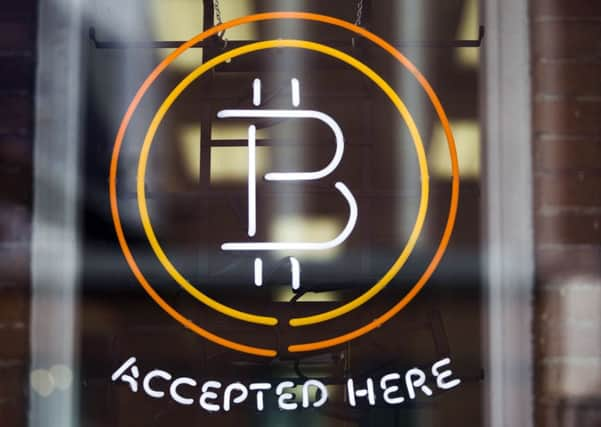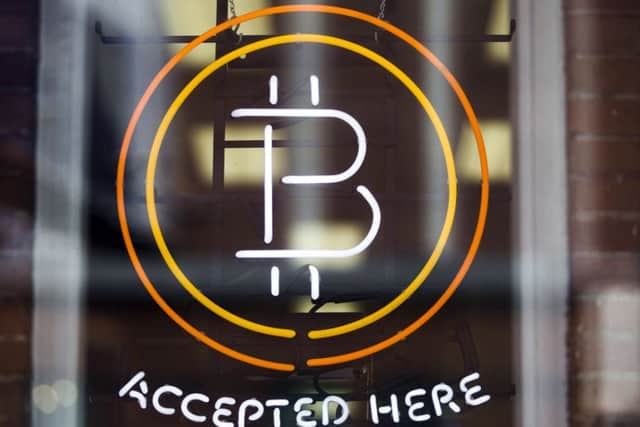Scottish retailer replaces pound with Bitcoin


A Scottish video game and electronics store yesterday became the first retail outlet in Britain to begin trading exclusively in digital currency.
CeX, which buys, sells and exchanges games and consumer technology, launched the trial at its Sauchiehall Street branch in Glasgow.
Advertisement
Hide AdAdvertisement
Hide AdUntil Friday, the outlet is switching from the pound to the bitcoin, the cryptocurrency created and traded online, in an attempt to highlight its benefits over older forms of legal tender.


A company spokesman also quipped the initiative might show how an independent Scotland could prosper without a currency deal with the rest of the UK.
Part marketing gimmick, part technological experiment, the store installed a bitcoin cash machine – one of only four in Britain – to allow customers to exchange their money for the online virtual currency.
David Butler, commercial director at CeX, said: “In our store, staff and customers live and breathe technology so it’s only appropriate we looked at bitcoin as a way for our customers to buy and sell electronic goods.
“Bitcoin has a number of security and access benefits, and is gaining popularity the world over.”
However, on the shop floor, customer opinion was divided. Ben Griffiths, from Glasgow, created his own account and exchanged a £10 note for 0.0386 Bitcoins to buy a few DVDs with change left over, after an instore introduction.
“I’d definitely keep using bitcoin if it was more available in shops and other places but I don’t know how many stores use it at the moment,” the 23-year-old said.
“It seems very safe and is quite similar to using PayPal which a lot of people use for eBay and other things on the internet, so I’m not so concerned about the security.”
Advertisement
Hide AdAdvertisement
Hide AdHowever, Colin McDermid, a 34-year-old from Dumbarton, said: “I’m not sure about bitcoin. I don’t know enough about it and I don’t really see the point.”
Andy Wood, 35, a senior manager at the CeX branch, said: “Since we opened, we’ve had about five or six people in to see about using the service. A number didn’t know what bitcoin was but our staff were ready to explain how it works.
“Some came in already with bitcoins after seeing what we were doing on social media and were interested to try it out and learn more about how it can be used for day-to-day purchases.”
Bitcoin works without the need for a central bank, and can be sent over the internet.
“Coins” are transferred person to person, and are kept in a digital wallet that can be accessed on a computer or mobile device. According to a report by The Why Forum, the number of bitcoin transactions globally rose tenfold in the last year, and are worth more than £40 million.
Among those watching the experiment was Eric Benz, business development adviser with GoCoin, which offers merchant accounts for Bitcoin traders.
Bitcoin, he reasoned, allowed retailers to cut out “middle men” such as Visa and Mastercard and process customer payments directly, saving cash in the long run. “The merchants don’t have to pay processing fees so it works in both the favour of shops and customers,” he said.